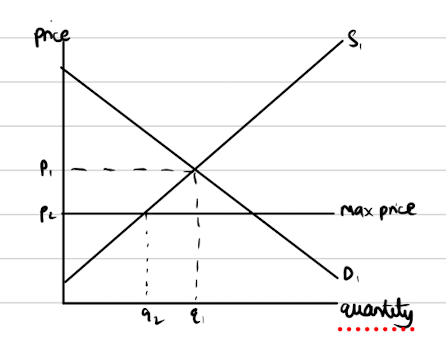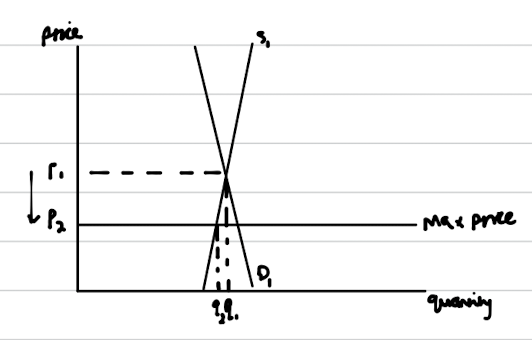A maximum price is a price above which it is illegal to sell a good or service. It is set below the equilibrium price to have any effect. It can be used to increase the consumption for merit goods such as housing.

The diagram shows that the maximum price causes the price of the good to fall from p1 to p2. This means that more people should be able to afford a house, which is important because housing has positive externalities in consumption and is currently under-consumed. However, the issue is that there is a decrease in consumption from q1 to q2.
This means that there is a risk of government failure. This is when government intervention leads to a worse allocation of resources than before. One of the reasons this can happen is because the minimum price distorts the market, causing excess demand. At a lower price, there are many consumers who are willing and able to buy a house but a low number of producers willing and able to sell a house. This excess demand means that a lot of people will be unhappy, and unable to move into a new house. Another issue is that the government could have imperfect information about the elasticity of houses. Houses are likely to be inelastic in demand because they are a necessity and they cost a large proportion of income, therefore they are not something that people will suddenly be more able to buy or sell, despite a price change. Houses may also arguably be inelastic in supply. This may be because they require a lot of time and money to build, a lot of land, and also planning permissions.

The diagram shows that the equilibrium quantity would remain high even after the minimum price, which would mean that quantity doesn't decrease by that much. This might mean that the government intervention could be a success as it increases equity and equality. However, those who own a house or multiple houses may be unhappy as they would gain much less revenue for something that they owned.